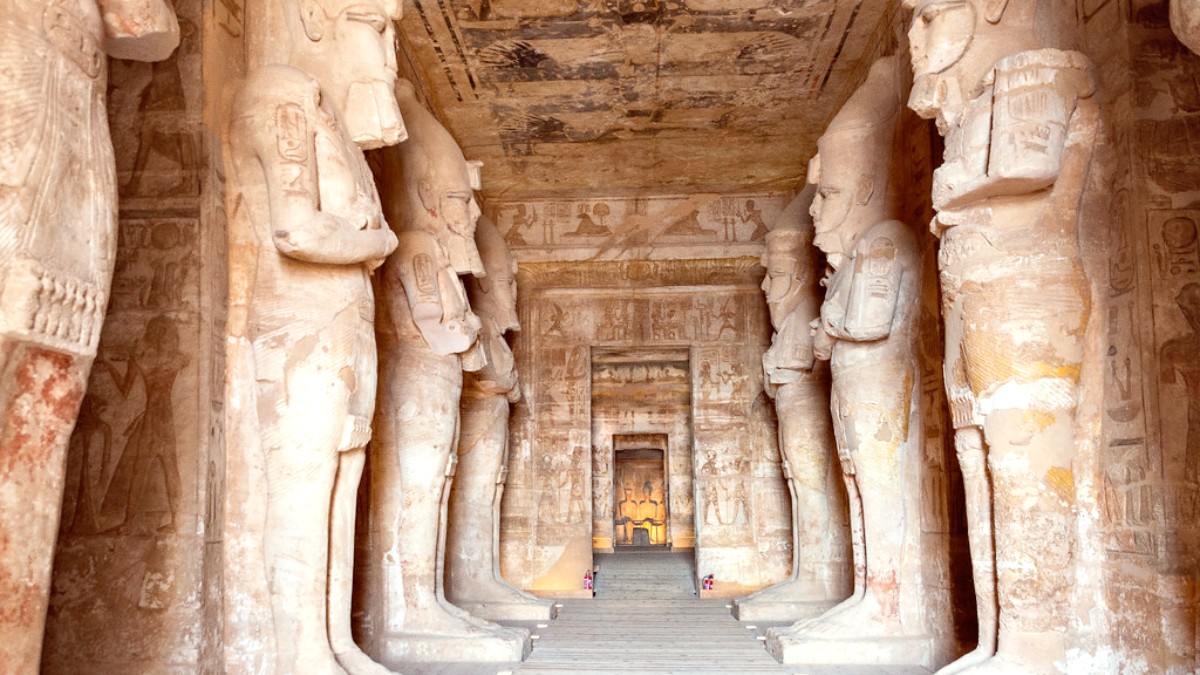
Egypt
This itinerary makes for a very ambitious experience, needing precise timing, assuming a layover in Aswan. It covers sites in a short window.
An early start is typical to make the most of the limited time, focusing on the most iconic sites.
For longer visits, combine highlights for a rich experience.
This allows a relaxed pace and exploration of Aswan in conjunction with Abu Simbel.
This itinerary combines Luxor highlights, a Nile Cruise, and Aswan with the Abu Simbel excursion, delivering a rich cultural and historical journey.
Day 6 (Evening): Arrive Aswan. Your Nile cruise will dock, or if you traveled by train, you will have more time to settle in.
This comprehensive itinerary allows a dive into Egypt's major historical and cultural sites.
Abu Simbel itself is not suitable for a long-term stay due to its limited amenities and isolated nature. For travelers considering an extended stay in Egypt (e.g., a month or more), Aswan or Luxor offer more amenities, apartment rentals, and a richer local life experience.
Limited amenities and isolated; not ideal for long stays.
Offers more amenities, apartment rentals, and local life.
A good base for slower exploration of Upper Egypt with many facilities.
Tailor your itinerary to specific passions, ensuring maximum enjoyment.
Prioritize early morning visits to Abu Simbel. This allows the best lighting and fewer crowds, enhancing historical appreciation. Spend ample time at both the Great Temple and the Small Temple.
Focus on trying local Egyptian and Nubian dishes. In Aswan, seek out local eateries and street food stalls; do not limit yourself to hotel restaurants.
Focus on Felucca sailing on the Nile in Aswan. This offers a relaxing yet active outdoor experience, notably popular at sunset.
Ensure comfortable travel. For the Abu Simbel trip, consider a private car for flexibility or a reputable, well-organized bus tour with good air conditioning.
Spend ample time at the Abu Simbel Temples. Study their reliefs, colossal statues, and the grand scale of their construction and relocation.
Experience the tranquility of the temples. Visit Abu Simbel in the very early morning or late evening for the site's peaceful atmosphere without large crowds.
Tailor your trip to your financial comfort, from backpacker savings to luxury indulgence.
Stay in hostels or budget guesthouses in Aswan (e.g., Keylany Hotel). Consider Nubian guesthouses for value and culture.
Stay in comfortable 3-4 star hotels in Aswan (e.g., Basma Hotel Aswan).
Stay at 5-star hotels in Aswan (e.g., Sofitel Legend Old Cataract Aswan).
Travel during shoulder season (May, September): Lower prices for accommodation and tours than in high season, with fewer crowds, and the weather remains manageable.
Different seasons make for unique advantages for visiting Abu Simbel and Egypt.
Different seasons make for unique advantages for visiting Abu Simbel and Egypt.
Summer (June - August): Very low crowds, making for a more intimate experience at the temples. You will find the best prices for accommodations and tours.
The Sun Alignment at Abu Simbel, occurring around February 22 and October 22, involves sunlight penetrating the Great Temple's sanctuary to illuminate the statues.
If you choose to travel in summer, accept the heat and plan accordingly. Schedule all outdoor activities for very early morning or late afternoon.
The Sun Alignment at Abu Simbel is a truly unique event, and it brings significant crowds. Planning ahead is for this experience.
Egypt observes various religious and cultural festivals throughout the year. Some may align with your visit, offering unique local experiences.
During Ramadan, many locals fast from dawn to sunset. Business hours may be reduced during the day, and some restaurants might close until sunset.
After sunset (Iftar), cities come alive with special decorations, festivities, and late-night dining. Tourists will find most services available, but schedules might adjust.